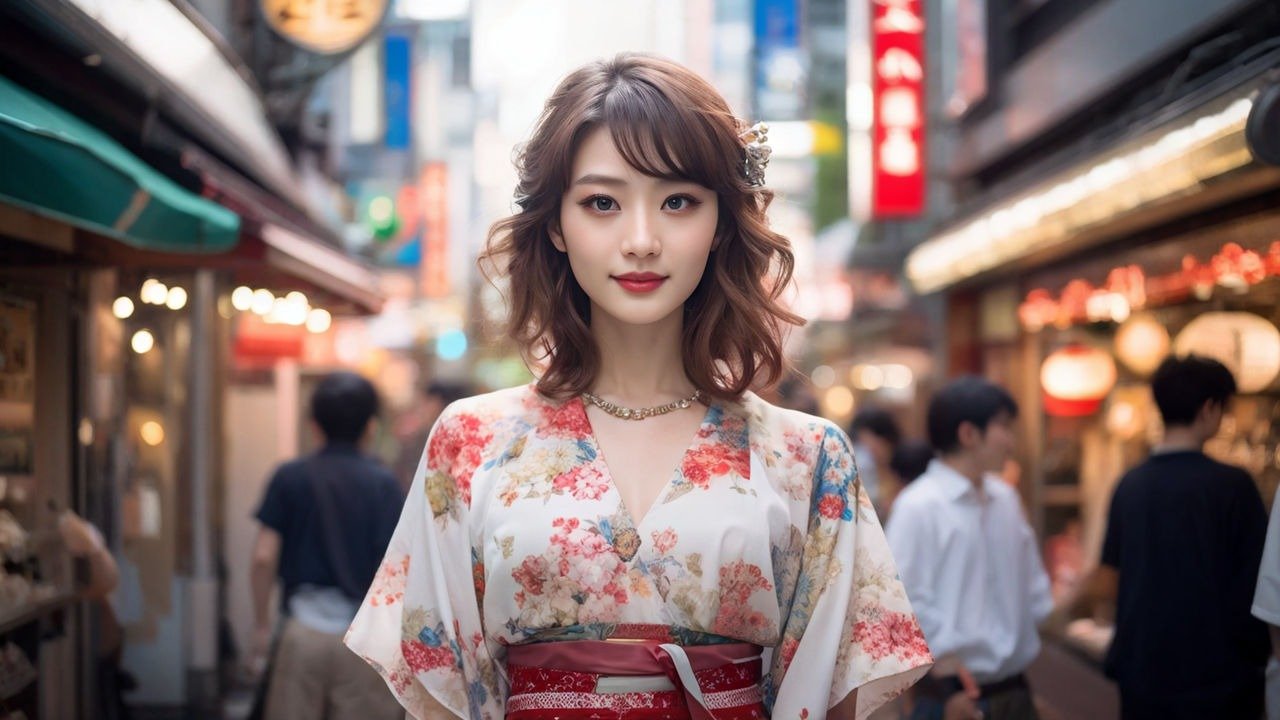Japanese names often carry deep meanings and cultural significance. Names linked to darkness are particularly intriguing as they reflect beauty, mystery, and strength, much like the night itself. This article delves into various Japanese girl names with dark meanings, exploring their origins and cultural importance.
The Cultural Significance of Darkness in Japanese Names
In Japanese culture, names are more than just labels; they carry deep meanings and reflect unique qualities or elements of nature. One of the most popular themes in Japanese names is darkness, which symbolizes mystery, strength, and power. Let’s explore the cultural significance of darkness in Japanese names through various lenses.
Historical Context
Historically, darkness in Japanese names has been associated with the unknown and the mystical. Ancient Japanese folklore and mythology often feature dark elements, portraying them as powerful and enigmatic. This historical context gives these names a sense of depth and timelessness.
Symbolism in Literature and Art
In Japanese literature and art, darkness is frequently used to symbolize complex emotions and themes. From the quiet beauty of shadows to the deep colors of the earth, darkness is a recurring motif that adds layers of meaning. This symbolism is reflected in names that evoke the quiet beauty and mystery of the night.
Modern Interpretations
Today, names with dark meanings continue to be popular, resonating with modern interpretations of strength and resilience. These names are not just for calling someone; they tell stories about nature, strength, and the quiet beauty of night. They have a unique charm that appeals to many, both in Japan and around the world.
The cultural significance of darkness in Japanese names is a testament to the multifaceted nature of this theme, portraying it as a symbol of beauty, mystery, and profound aspects of nature.
Popular Japanese Girl Names with Dark Meanings
In Japanese culture, names often carry deep meanings and reflect various aspects of nature, emotions, and even darkness. Here, we explore some popular Japanese girl names with dark meanings that are both beautiful and profound.
Kuroyuki: Black Snow
Kuroyuki (黒雪) translates to “black snow,” symbolizing a rare and mystical occurrence in darkness. This name evokes a sense of wonder and the extraordinary beauty found in the shadows.
Yamimomo: Dark Peach
Yamimomo (闇桃) refers to “dark peach,” symbolizing longevity and renewal in the shadows. This name combines the idea of darkness with the delicate beauty of a peach, creating a unique and meaningful name.
Kuroai: Black Love
Kuroai (黒愛) means “black love,” representing deep, intense, and enduring affection in the darkness. This name highlights the profound and mysterious aspects of love that can be found even in the darkest times.
These names, rich in meaning and cultural significance, reflect the multifaceted nature of darkness in Japanese culture, portraying it as a symbol of depth, mystery, and natural beauty.
Names Inspired by Night and Shadows
In Japanese culture, names inspired by night and shadows carry a deep, contemplative essence. These names capture various aspects of shadows or related phenomena, offering a wide palette of names that resonate with the profound mystery of darkness.
Yami: Darkness
The name Yami translates directly to “darkness.” It embodies the profound mystery and depth that shadows represent in Japanese folklore. Yami is a name that transcends the literal interpretation of darkness, instead capturing the nuanced nature of shadows.
Kage: Shadow
Kage means “shadow” and is often used to signify the subtle, elusive nature of shadows. This name encapsulates elements of the mythical and enigmatic, akin to the nuanced nature of shadows in Japanese culture.
Yoru: Night
Yoru translates to “night,” a time when shadows merge and mysteries intensify. This name reflects the contemplative essence of nightfall, where darkness is not merely the absence of light but a realm of profound depth and mystery.
These names, through their meanings and connotations, weave a tapestry of intrigue, each bearing a unique connection to the mystical essence of shadows.
Nature-Inspired Dark Names
In Japanese culture, names often reflect the beauty and mystery of nature. Names inspired by nature can carry deep meanings and evoke powerful imagery. Let’s explore some nature-inspired dark names that are both beautiful and meaningful.
Names Reflecting Mystical and Mythical Elements
In Japanese culture, names often carry deep meanings and stories. Some names reflect mystical and mythical elements, adding a layer of enchantment and mystery. These names weave a narrative that touches on themes of darkness, mystery, and ethereal beauty. Let’s explore a few of these captivating names.
Tsukihime: Moon Princess
Tsukihime, meaning “Moon Princess,” evokes images of a serene and mystical figure bathed in moonlight. This name captures the essence of the moon’s ethereal beauty and its connection to the night sky.
Kokuyoku: Black Wings
Kokuyoku translates to “Black Wings,” symbolizing the mysterious and powerful nature of dark wings. This name suggests a sense of freedom and the unknown, much like the vast and often mysterious nature of the world.
Shingetsu: New Moon
Shingetsu means “New Moon,” representing new beginnings and the hidden potential that comes with the dark phase of the moon. This name embodies the idea of renewal and the mystical qualities of the moon’s cycles.
In Japanese mythology, these names capture various aspects of shadows or related phenomena, offering a wide palette of names that resonate with the deep, contemplative essence of shadows in Japanese culture.
Names Symbolizing Strength and Resilience
In Japanese culture, names often carry deep meanings and reflect important values. Names that symbolize strength and resilience are particularly cherished, as they embody the spirit of overcoming challenges and enduring hardships. These names are not just labels but are imbued with symbolism and tradition, connecting individuals to their heritage and the virtues of their ancestors.
Yamito: Dark Fighter
The name Yamito combines the elements of darkness and combat, creating a powerful image of a warrior who thrives in adversity. This name reflects a person who is not only strong but also resilient, capable of facing and overcoming the darkest of times.
Kuroshi: Black Intention
Kuroshi is a name that signifies a determined and unwavering spirit. The “black” in Kuroshi represents depth and mystery, while “intention” highlights a focused and purposeful nature. This name is perfect for someone who is steadfast and resolute in their goals.
An’yoku: Dark Desire
An’yoku blends the concepts of darkness and desire, symbolizing a deep and powerful drive. This name suggests a person with a strong will and the ability to pursue their ambitions with passion and determination. It reflects a balance between inner strength and outward resilience.
In the rich tapestry of Japanese naming traditions, names like Yamito, Kuroshi, and An’yoku stand out for their profound meanings and the strength they convey. They are a testament to the enduring spirit and resilience that are highly valued in Japanese culture.
Names Evoking Beauty and Elegance
In Japanese culture, names often carry deep meanings and evoke vivid imagery. Names that evoke beauty and elegance are particularly cherished, as they embody the grace and charm that are highly valued in Japanese society. These names not only reflect physical beauty but also inner qualities such as kindness and grace.
Names Associated with Time and Seasons
Mayonaka: Midnight
Mayonaka, meaning “midnight,” captures the essence of the darkest hour of the night. This name evokes a sense of stillness and mystery, reflecting the serene tranquility of a winter landscape in Japan. Midnight is often seen as a time of introspection and quiet, making this name deeply resonant.
Tasogare: Dusk
Tasogare translates to “dusk,” the time when day transitions into night. This name symbolizes the fleeting beauty of twilight, a moment filled with both light and shadow. The name history of Tasogare is rich, often appearing in literature and poetry to depict the delicate balance between day and night.
Shugetsu: Autumn Moon
Shugetsu means “autumn moon,” a name that brings to mind the crisp, clear nights of the fall season. The autumn moon is celebrated in Japanese culture for its beauty and the sense of calm it brings. This name associations with the moon and autumn make it a poetic choice, reflecting the serene and contemplative nature of the season.
In Japanese culture, names inspired by time and seasons often carry deep emotional resonance, connecting individuals to the natural world and its cycles.
Names with Deep Emotional Resonance

In Japanese culture, names often carry deep meanings and stories. They are more than just labels; they are whispers from the night sky, each telling its tale of mystery, strength, and quiet beauty. These names capture profound depth and emotional resonance, reflecting the intricate and poetic essence of Japanese culture and language.
Anmu: Dark Dream
Anmu is a name that evokes the imagery of a dark dream. It symbolizes the mysterious and often introspective nature of dreams that occur in the darkness of night. This name captures the essence of profound depth and the enduring impression left by a dream.
Kuroai: Black Love
Kuroai combines the words for “black” and “love,” creating a name that speaks to the deep, often complex nature of love. It represents the idea that love can be both beautiful and dark, filled with intense emotions and connections. This name is a perfect example of how Japanese names can reflect deep emotional connections.
Yamimomo: Dark Peach
Yamimomo, meaning “dark peach,” is a name that blends the imagery of darkness with the delicate beauty of a peach. It symbolizes the contrast between light and dark, beauty and mystery. This name captures the essence of a deep, emotional resonance that is both captivating and enigmatic.
Names Highlighting the Contrast Between Light and Dark
In Japanese culture, names often reflect a balance between opposing forces, much like the concept of yin and yang. This balance is beautifully captured in names that highlight the contrast between light and dark. These names not only carry deep meanings but also tell stories of mystery and beauty.
Kokuei: Black Shadow
Kokuei (黒影) translates to “black shadow.” This name embodies the idea of a shadow that is always present, subtly highlighting the light around it. It’s a name that speaks to the quiet strength and ever-present nature of shadows.
Yamikage: Shadow in the Darkness
Yamikage (闇影) means “shadow in the darkness.” This name captures the essence of a shadow that exists even in the darkest of places, symbolizing resilience and the ability to stand out even in difficult times.
Kuragari: Gloom
Kuragari (暗がり) translates to “gloom” or “deep darkness.” This name represents the profound and robust nature of darkness, showing that even in the absence of light, there is a unique beauty and strength to be found.
The interplay between light and dark in these names offers a unique interpretation of the black and white, yin and yang theme. They remind us that light and dark are not just opposites but complementary forces that define each other.
Names Representing the Unknown and Mysterious
In Japanese culture, names often carry deep meanings and connotations. Some names evoke a sense of mystery and the unknown, much like the nuanced nature of shadows in Japanese folklore. These names are not just beautiful but also profoundly intriguing.
Kurotsuki: Black Moon
The name Kurotsuki (黒月) translates to “Black Moon.” This name symbolizes the mysterious and often hidden aspects of the moon, which has always been a source of fascination and wonder. The moon’s dark side represents the unknown and the unseen, making Kurotsuki a name that embodies mystery.
Yamimaru: Dark Circle
Yamimaru (闇丸) means “Dark Circle.” This name suggests a sense of completeness and infinity, much like the endless cycle of night and day. The circle is a powerful symbol in many cultures, representing unity and the eternal nature of life. In this context, it adds a layer of enigma and depth.
Kurou: Ninth Son
Kurou (九郎) translates to “Ninth Son.” In Japanese culture, the number nine is often associated with mystery and the supernatural. This name carries a sense of ancient wisdom and hidden knowledge, making it a perfect choice for those who appreciate the mystical aspects of life.
These names, with their meanings and connotations, weave a tapestry of intrigue, each bearing a unique connection to the mystical essence of shadows.
When choosing a name, it’s essential to consider its name pronunciation and the cultural significance it carries. These names, with their deep meanings, offer a glimpse into the rich tapestry of Japanese culture, where the unknown and the mysterious are celebrated and revered.
Names Inspired by Celestial Phenomena
In Japanese culture, celestial phenomena have always held a special place, inspiring names that capture their beauty and mystery. These names often reflect the awe and wonder that the night sky brings. Let’s explore some of the most enchanting names inspired by celestial events.
Hoshiko: Child of Stars
Hoshiko is a name that means “child of stars.” It evokes the image of a night sky filled with twinkling stars, each one a beacon of hope and dreams. This name is perfect for someone who brings light and inspiration to those around them.
Shingetsu: New Moon
Shingetsu translates to “new moon,” symbolizing new beginnings and fresh starts. The new moon marks the start of a lunar cycle, a time for setting intentions and looking forward to the future. It’s a name that carries a sense of renewal and potential.
Tsukihime: Moon Princess
Tsukihime means “moon princess,” a name that captures the elegance and grace of the moon. The moon has always been a symbol of beauty and mystery, and this name reflects those qualities perfectly. It’s a name fit for someone with a regal and enchanting presence.
The moon, with its sublime beauty and serene presence, has inspired generations of poets, artists, and dreamers. Japanese names for the moon bear special significance, symbolizing beauty, grace, and the cycle of life itself.
Conclusion
In conclusion, Japanese girl names with dark meanings offer a fascinating glimpse into the culture’s appreciation for the beauty and mystery of the night. These names are not just labels but carry deep stories and symbolism, reflecting qualities like strength, elegance, and the quiet allure of shadows. Whether you are considering one of these names for a child, yourself, or even a pet, they provide a unique connection to the rich cultural tapestry of Japan. Embrace the depth and charm these names offer, and let them inspire you with their profound meanings.
Key Takeaways
- Japanese names with dark meanings often symbolize beauty, mystery, and strength.
- These names are deeply rooted in Japanese culture, literature, and art.
- Modern interpretations of these names continue to evolve, reflecting contemporary values and aesthetics.
- Names inspired by night, shadows, and mystical elements are popular choices.
- Nature-inspired dark names often carry profound and poetic meanings.
Frequently Asked Questions
What do these Japanese names mean?
Each name has a special meaning, often related to beauty, strength, and the mystery of night or shadows.
Can these names be used for anyone?
Yes, these names can be used by anyone. They are popular for babies, but anyone who likes the meaning can use them.
Are these names only for people in Japan?
No, while these names are Japanese, people worldwide who love the culture or the meanings of the names can use them.
Do these names bring good luck?
In Japanese culture, names are very important. Some believe that the right name can bring good luck and happiness.
Can I choose one of these names for a pet?
Absolutely! These names are beautiful and meaningful choices for your pet.
Are these names common in Japan?
Some of these names are common, while others are more unique. They all carry deep meanings and cultural significance.
What is the cultural significance of darkness in these names?
Darkness in these names often symbolizes beauty, mystery, strength, and the quiet elegance of night.
Can these names be used for fictional characters?
Yes, these names are great for fictional characters as they add depth and cultural richness to the story.




